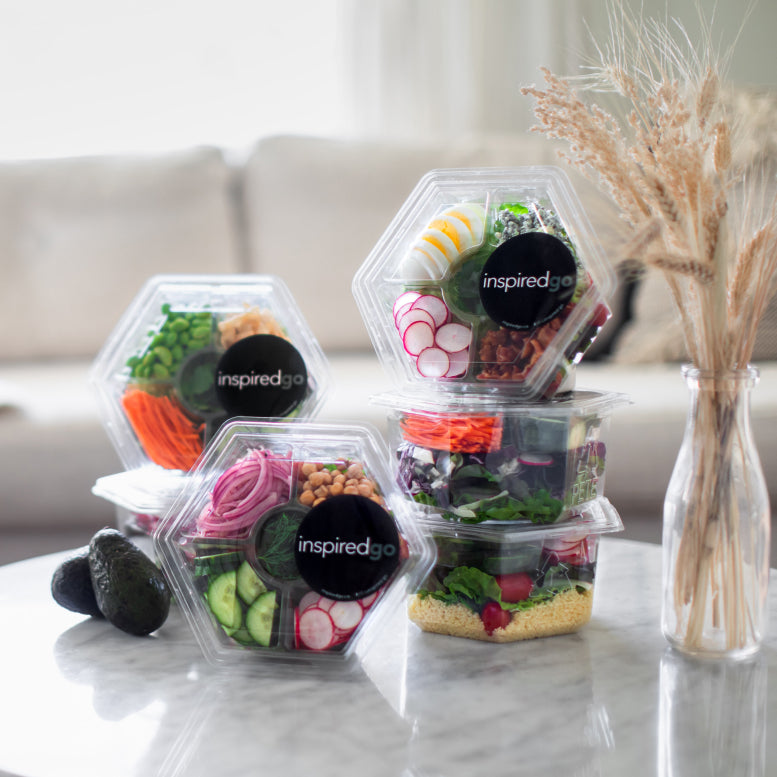What A Healthy Diet Looks Like?
Table of Contents
1. The Blueprint of a Healthy Diet
2. What Does a Healthy Diet Consist Of?
3. How Does a Structured Diet Improve Long-Term Eating Habits?
4. How Does a Healthy Diet Support Long-Term Wellness?
1. The Blueprint of a Healthy Diet
A healthy diet is one that offers optimal nutrition through a balanced blend of proteins, carbohydrates, fats, vitamins, and minerals. It's a diet that includes fresh, unprocessed foods like fruits, vegetables, whole grains, lean meats, and dairy products. A well-rounded diet doesn't just focus on the quantity of food consumed, but also the quality. This means including nutrient-dense foods that provide the body with the energy it needs to function optimally. Regular consumption of ready-to-eat meals such as salads, breakfast items, and dinner options that are rich in wholesome ingredients can help maintain a healthy diet without spending hours in the kitchen. Snack packs and add-ons also offer convenient ways to stave off hunger while ensuring nutritional needs are met. A healthy diet is a cornerstone of overall wellness, contributing to physical health, mental well-being, and a positive lifestyle.
Order fresh salads today →


2. What Does a Healthy Diet Consist Of?
A healthy diet consists of nutrient-dense foods that provide essential vitamins, minerals, proteins, and healthy fats while minimizing excess sugars, unhealthy fats, and processed ingredients. Balanced meals typically include lean proteins, fiber-rich vegetables, whole grains, and unsaturated fats. Diet food delivery services simplify building a balanced diet by offering pre-portioned, ready-to-eat meals designed by nutrition experts. Each meal comes with clear nutritional information, ensuring customers can monitor their intake and stay aligned with their health goals. Subscription models provide regular meal deliveries, removing the guesswork from meal planning. By offering structure, consistency, and quality, diet food delivery services make it easier to stick to a balanced and nutritious eating routine.
Choose your salads and schedule delivery →
3. How Does a Structured Diet Improve Long-Term Eating Habits?
A structured diet is more than just a way to manage nutrition—it establishes long-term habits that support overall well-being. Following a set meal plan helps individuals develop consistency, making healthy choices easier to sustain over time. Meal delivery services simplify this process by removing the daily stress of meal prep, portioning, and tracking, allowing individuals to focus on lifestyle improvements rather than restrictive dieting. By maintaining steady access to nutritionally balanced meals, structured eating promotes mindful consumption, reduces impulse eating, and supports steady energy levels throughout the day. Over time, these habits contribute to a sustainable, health-focused lifestyle rather than short-term dieting cycles.
Get fresh salads and snacks delivered →
4. How Does a Healthy Diet Support Long-Term Wellness?
Inspired Go’s meal delivery service focuses on long-term wellness by providing consistent access to balanced, ready-to-eat meals. Nutritionally dense meals crafted with whole grains, lean proteins, and fresh vegetables promote sustained energy, improved digestion, and mental clarity. Subscription options offer ongoing meal deliveries, ensuring dietary consistency even during busy weeks. Each meal is pre-portioned, helping customers manage calorie intake and avoid overeating. Inspired Go also emphasizes transparency with clear nutritional labeling, making it easier to track long-term progress. With a focus on sustainability, quality, and health, Inspired Go supports customers in building lasting dietary habits that contribute to lifelong wellness.
Try our fresh, ready-to-eat salads →
Frequently Asked Questions
Eating healthy without cooking is achievable by incorporating ready-to-eat nutritious options into your diet. Pre-prepared salads, fresh fruit, nuts, yogurt, and meal delivery services offering balanced meals are excellent choices. Look for meals high in fiber, protein, and healthy fats while minimizing processed ingredients. This approach ensures you maintain a nutritious diet even with a busy lifestyle or lack of cooking time.
Eating healthy on a budget involves planning meals around affordable, nutrient-dense ingredients. Prioritize staples like whole grains, beans, and seasonal vegetables, which are both inexpensive and nutritious. Opt for meal prep services or delivery plans that offer cost-effective options for healthy eating. Buying in bulk, reducing waste, and preparing meals at home also significantly reduce costs while maintaining balanced nutrition.
A healthy diet is one that emphasizes whole, unprocessed foods like fruits, vegetables, lean proteins, whole grains, and healthy fats. It provides the necessary nutrients for energy, growth, and disease prevention while limiting added sugars, saturated fats, and highly processed foods. A balanced diet supports physical and mental well-being and can be tailored to meet individual nutritional needs.
To eat more healthily, focus on gradually incorporating whole foods into your meals. Start by adding more vegetables to your plate, swapping refined grains for whole grains, and opting for lean protein sources like fish or legumes. Stay hydrated and avoid sugary beverages. Small, consistent changes can lead to long-term improvements in dietary habits without feeling restrictive.
Eating healthy is essential for maintaining overall health and well-being. A balanced diet reduces the risk of chronic diseases such as diabetes, heart disease, and obesity while supporting energy levels, mental clarity, and immune function. Consuming nutrient-dense foods provides your body with the vitamins and minerals it needs to function optimally, contributing to a longer, healthier life.

